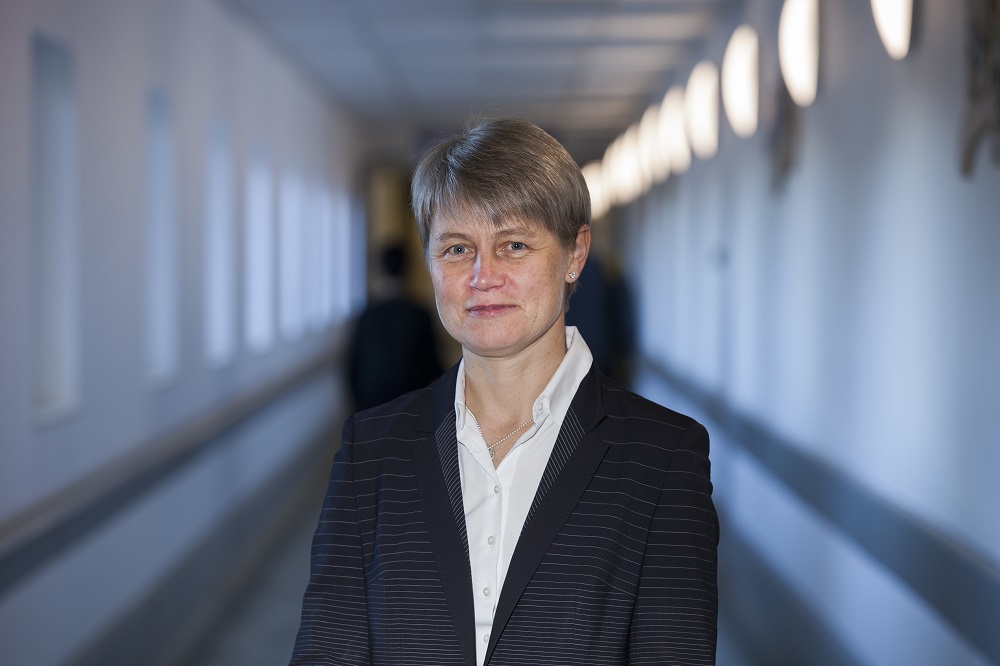World class plans put ACT health facilities in strong position to deal with COVID-19

In a year where the word ‘unprecedented’ has turned into a catchphrase and images of overwhelmed hospital systems and lock-downs have become the norm, as a Territory we are fortunate to have, so far, dodged a bullet.
Thanks to the work of Professor Imogen Mitchell, and her team, ACT health facilities are in a strong position to deal with what might lie ahead.
In early March 2020, Professor Mitchell, Director of the ANU Medical School and Senior Intensive Care Specialist at Canberra Hospital, was hearing reports from colleagues in England about the high number of COVID-19 cases sweeping Italy and other parts of Europe.
“In Italy, where the health system is first class, doctors where saying they were unable to manage the number of patients presenting to intensive care. They were having to make decisions about who could access a ventilator and who couldn’t. An intensive care doctor’s role is to save lives. We never want to be in a position where we can’t provide care because of a lack of equipment,” explains Professor Mitchell.
In preparation for what could have eventuated in Australia, Professor Mitchell was finalising the details of a business continuity plan to lead the ANU Medical School through the crisis. But before she could roll out the plan, she was approached by Canberra Health Services to take up the position of Clinical Director ACT COVID-19 Response.
“In seeing what had been happening around the world, I felt a sense of duty to use my critical care, organisational and leadership skills to help our community,” Professor Mitchell said.
The transition from leading a medical school to clinical directorship was relatively straightforward given Professor Mitchell’s 15 years of experience as the Director of the Intensive Care Unit at the Canberra Hospital. Under her leadership the unit increased greatly in size and quality of care.
However, like many others, leading in a pandemic was unchartered territory. “My greatest challenge was entering a pandemic without knowing quite what to do but leaning heavily on those who could give me advice (military leaders, health leaders and wise mentors - nationally and internationally) and having a small team of hardworking individuals who provided me with up-to-date evidence to ensure our plans were as good as anywhere in the world.”
Her willingness to listen and learn in the early days of the pandemic, and rely on the evidence, has made her an instrumental player in ensuring the ongoing safety of ACT residents and more recently elderly residents in residential aged care facilities.
The role has seen Professor Mitchell supply clinical oversight to the comprehensive plans for all the ACT health facilities to effectively respond to the pandemic, provide evidence-based guidance to the Deputy Health Controller of the Clinical Health Emergency Coordination Unit, and lead the development of the Territory-wide Framework for Ethical Decision making. The Framework provides the triage process for intensive care in the event the demand exceeds the supply. It’s an area Professor Mitchell hopes no doctor needs to consider but worst case scenarios need to be addressed.
Impressively, Professor Mitchell is also leading the COVID-19 Safety Assessment of all the Residential Aged Care Homes in the ACT by establishing 5 assessment teams, developing a tool to review the Residential Aged Care Facilities and engaging all 29 Residential Aged Care Facilities into the process. Professor Mitchell has had excellent engagement from the aged care facilities and collectively they are strengthening the response to keep our elderly citizens safe.
“In returning to be a front line clinician recently, I am reminded of the privilege I have of being a doctor - the trust that patients and families put in you and the exceptional team members I work with. I have the added privilege of medicine creating all sorts of opportunities, which I would never have envisaged. I’m also fortunate to have the supports to allow me to explore my opportunities.”
